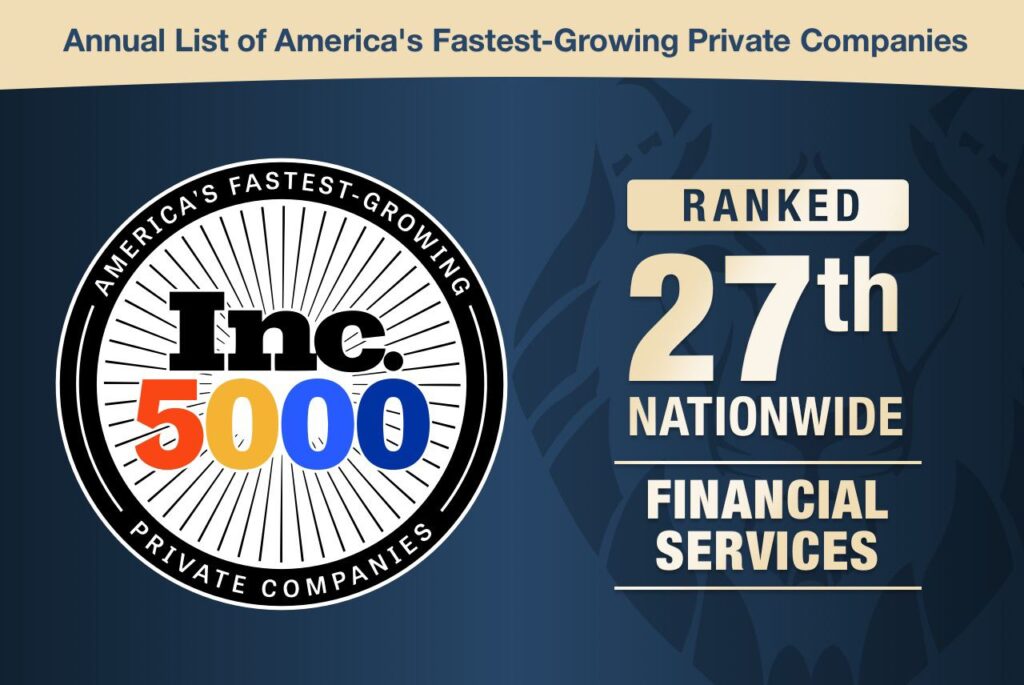Understanding which industries can weather the storm of a recession is essential for investors, entrepreneurs, and job seekers alike. The term “recession-proof” refers to sectors that either thrive or remain stable during economic downturns, providing essential services or products that remain in high demand even when times are tough.
This article reviews ten industries renowned for their resilience during recessions. From the ever-essential healthcare and grocery sectors to the realms of information technology and education, we’ll explore why these industries are considered recession-resistant.
As we walk you through each sector, we’ll discuss the characteristics that help them withstand economic slumps, such as consistent cash flow, the provision of essential services, and strong demand regardless of broader economic conditions. We’ll also touch on how recession-proof industries offer opportunities for business owners, investors, and those seeking job security during uncertain times.
Whether you’re looking to protect your investments, pivot your career, or understand the broader economic landscape, knowing which industries stand firm in a financial crisis is invaluable. Join us as we explore recession-proof industries and what makes them tick even when the economy is downturned.
What Is a Recession?
A recession is a temporary economic decline during which trade and industrial activities are reduced. This is generally identified by a fall in Gross Domestic Product (GDP) in two successive quarters — significant consumer spending, investment, employment rates, and industrial production drop. During a recession, the economy slows, businesses generate lower profits, and many may close or downsize, leading to increased unemployment rates.
Historical examples include the Great Recession of 2007 to 2009, triggered by the housing market crash and financial crisis, where many lost their homes, jobs, and savings as the stock market plummeted and credit froze.
Another notable period was the early 1980s recession, primarily attributed to tight monetary policies to control high inflation, leading to significant job losses and business closures. Each recession has unique causes and impacts, but common themes include a substantial reduction in economic activity and a notable impact on everyday Americans’ lives.
What Causes a Recession?
Understanding the triggers of a recession is important for understanding economic downturns effectively. Several key factors, often interrelated, can lead an economy into a recession. These range from monetary policies and market dynamics to external shocks and consumer behavior.
By examining these causes in detail, we can gain insights into the warning signs and potential strategies to mitigate the impact. Here’s an in-depth look at the triggers that can lead to a recession.
High Interest Rates
The Federal Reserve might increase interest rates to manage inflation. While controlling inflation is crucial, excessively high interest rates can make loans and credit expensive for consumers and businesses. This leads to reduced spending and investment, slowing economic activities like housing purchases and business expansions and eventually contracting the GDP. During the early 1980s, the U.S. experienced a recession when the Federal Reserve dramatically increased interest rates to combat inflation.
Falling Consumer Confidence
Consumer confidence reflects how optimistic or pessimistic people are about their future financial prospects. If consumers expect the economy to worsen, they will likely save more and spend less. This reduced spending means businesses sell less, leading to lower profits, cutbacks, and layoffs, further exacerbating the economic downturn. The Great Recession saw a significant drop in consumer confidence as people worried about job security and falling home values.
Decreased Demand
If there’s a significant decrease in demand for goods and services, businesses will cut back on production, leading to layoffs and further declines in consumer spending. Various factors, including falling incomes, higher taxes, or a general economic slowdown, can trigger this. The pandemic-induced recession in 2020 is a prime example, where demand for many services, especially travel and hospitality, plummeted due to health concerns and restrictions.
Asset Bubbles
An asset bubble occurs when the prices of assets like real estate or stocks become inflated beyond their actual value, often driven by speculative demand. When these bubbles burst, they can lead to significant losses for investors and financial institutions, reducing wealth and consumer spending. The dot-com bubble burst in the early 2000s and the housing market collapse in 2007 are examples of how asset bubbles can contribute to recessions.
Financial Crises
Financial crises can take various forms, from banking crises to widespread defaults, and can lead to a dramatic reduction in lending and spending. The 2008 financial crisis, sparked by the collapse of major financial institutions holding subprime mortgages, led to a credit crunch that dramatically reduced business and consumer spending.
External Shocks
Wars, oil price shocks, pandemics, and natural disasters can cause sudden and severe economic disruptions. The COVID-19 pandemic, for example, led to a global recession in 2020 due to widespread lockdowns, supply chain disruptions, and reduced consumer and business activity.
Government Policies
Sudden or poorly planned changes in government policies, such as significant tax increases or spending cuts, can reduce economic demand. The fiscal cliff in the U.S. in 2013, where automatic tax increases and spending cuts were set to occur, risked pushing the economy back into recession. However, disaster was averted through last-minute deals.
What Industries Are Considered Recession-Proof?
Specific industries have historically shown resilience during economic downturns, making them “recession-proof” to a certain extent. These sectors provide essential services or goods that remain in demand, regardless of the overall economic conditions.
Understanding these recession-proof businesses can help investors, business owners, and job seekers make informed decisions during tough economic times. Here’s a closer look at some recession-proof industries and why they tend to withstand recessions better than others.
1. Healthcare
The healthcare industry is fundamentally recession-proof due to the constant demand for medical care and services, regardless of the economy’s state. People continue to require healthcare, from routine check-ups to critical surgeries, making this sector resilient during economic downturns.
While many sectors lost jobs during the Great Recession, healthcare continued to add them. Hospitals, pharmaceutical companies, and other healthcare providers often see stable or increased demand, partly due to the aging population and the critical nature of their services.
For instance, the demand for healthcare spiked during the pandemic, highlighting its essential role and recession-resistant nature. Historical trends show that healthcare stocks and services often maintain or increase their value when other sectors falter, making them a wise consideration for those looking to invest in recession-proof industries.
2. Food and Beverage
No matter the economic climate, people need to eat, making the food and beverage industry exceptionally resilient. Grocery stores and supermarkets often see stable or increased sales as consumers continue to buy necessities during tough times.
During economic downturns, while there might be a shift from dining out to more home cooking, the overall demand for food remains constant. Companies providing basic food items, especially those offering budget-friendly options, perform well during recessions.
Historical sales data from major grocery chains like Walmart show stable or increased revenue during the recession. The consistent demand and the essential nature of the products make the food and beverage industry one of the most recession-resistant sectors.
3. Utilities
Utilities such as water, electricity, and gas are fundamental services required continuously by consumers, making this sector immune primarily to economic downturns. Even during tough times, people must keep their homes powered and heated, ensuring a steady demand for utility services.
Utility companies usually offer stable dividends, which attract investors during market volatility and economic uncertainty. Historical performance of significant utility companies often demonstrates consistent cash flow and dividends, even during recessions, as the demand for their services remains relatively constant regardless of the broader economic conditions.
4. Federal Government
While not an industry in the traditional sense, the federal government sector often remains stable or sees growth during recessions. Government jobs and services are important for the country’s functioning and often become more crucial during economic downturns as public sector spending ramps up to stimulate the economy and provide social services.
During the Great Recession, federal government employment remained relatively stable, and stimulus packages increased government spending to boost economic activity. Additionally, specific government-backed sectors like defense continue to operate and often expand during recessions, providing stability and job security.
5. Cosmetics
Surprisingly, the cosmetics industry often thrives during economic downturns due to a phenomenon known as the “lipstick effect,” where consumers continue to purchase small luxury items, such as makeup, even when cutting back on larger expenditures. This trend suggests that during tough economic times, people seek affordable luxuries to boost their mood and self-esteem.
Social media can play a big part in this industry, ensuring that ecommerce stores continue to do well, even during recessions. Historical sales data from major cosmetic companies frequently show resilience or growth during recessions, supporting the theory that the industry is somewhat insulated from broader economic challenges.
6. Child Services
Childcare services remain necessary for working parents, making this sector relatively stable even during economic downturns. The demand for childcare services, including daycare and after-school programs, remains fairly consistent as parents continue to work and require reliable childcare.
Providers that offer dependable, affordable childcare services can experience stable demand, making this sector relatively recession-proof. Despite economic challenges, parents prioritize their children’s care and well-being, ensuring ongoing demand for these services.
7. Debt Collection
Economic downturns often lead to increased financial hardships for many individuals, resulting in more unpaid debts. This unfortunate reality increases the demand for debt collection agencies as creditors and lenders look to recover what they’re owed.
Historical data typically shows an increase in the activity and profitability of debt collection agencies during and following economic downturns. As individuals and businesses struggle to meet their financial obligations, the financial services of debt collection agencies become more crucial, making this sector relatively resistant to recessions.
8. Cleaning and Sanitation
The need for cleaning and sanitation services, especially in public and commercial spaces, remains constant and can even increase during inevitable economic downturns, such as pandemics.
Businesses, healthcare facilities, and individuals continue to require these services to maintain health standards and prevent the spread of illness. The industry is less sensitive to economic slumps due to its essential nature. In some cases, such as during the COVID-19 pandemic, the demand for sanitation and cleaning services surged, highlighting its stability and potential growth during challenging times.
9. Logistics
Even during tough times, the movement and delivery of goods remain essential. The logistics industry, which includes shipping, trucking, and warehousing, is an important component of nearly every other industry’s supply chain.
While it may experience shifts in demand for specific goods or services, the overall need for transportation and logistics remains. Companies in this sector often adapt quickly to changing market conditions, and their services are crucial for everyday operations and emergency responses.
The ability to transport goods efficiently and reliably makes the logistics sector a key player in maintaining economic stability during recessions.
10. Education
Education and training are often viewed as pathways to better job security and opportunities, leading many individuals to continue or return to educational programs during recessions to improve their prospects. Institutions providing essential, affordable, or flexible education and training can see sustained or increased demand during economic downturns. People seek to enhance their skills and qualifications to better compete in the job market, making the education sector notably resilient.
Whether through traditional colleges, online courses, or vocational training, the education industry provides critical services that maintain its relevance and demand, even amid economic uncertainty.
The Bottom Line
Understanding recession-resistant industries is essential for making informed decisions during economic downturns. As we’ve explored, sectors like healthcare, consumer staples like food and beverage, utilities, and government services offer stability and resilience when the broader economy struggles.
These industries provide essential services or adapt well to changing economic conditions, making them attractive for investors, entrepreneurs, and those seeking job security during tough times. Recession-proof industries can be a strategic part of safeguarding your portfolio against economic slumps. It’s about balancing risk and stability, ensuring steady cash flow, and capitalizing on sectors with continued high demand.
However, it’s also important to remember that diversification is critical. No industry is immune to economic pressures, and a well-rounded investment strategy should consider various assets and sectors.
For those looking to fortify their assets and navigate economic uncertainty with greater confidence, American Hartford Gold is here to help. Offering a range of precious metals known for their stability and value retention during volatile times, American Hartford Gold can provide the resources and expertise you need to make informed decisions.
Precious metals like gold and silver have historically performed well during recessions, offering a tangible asset that can diversify your portfolio and protect your wealth. Reach out to American Hartford Gold today to learn how they can help you secure your financial future, regardless of the economy.
Sources:
Recession Definition: What Is A Recession? | Forbes
What Causes a Recession? | Investopedia
10 Recession-Proof Business Ideas | Forbes
Public education a recession-proof industry | Kansas Policy Institute






